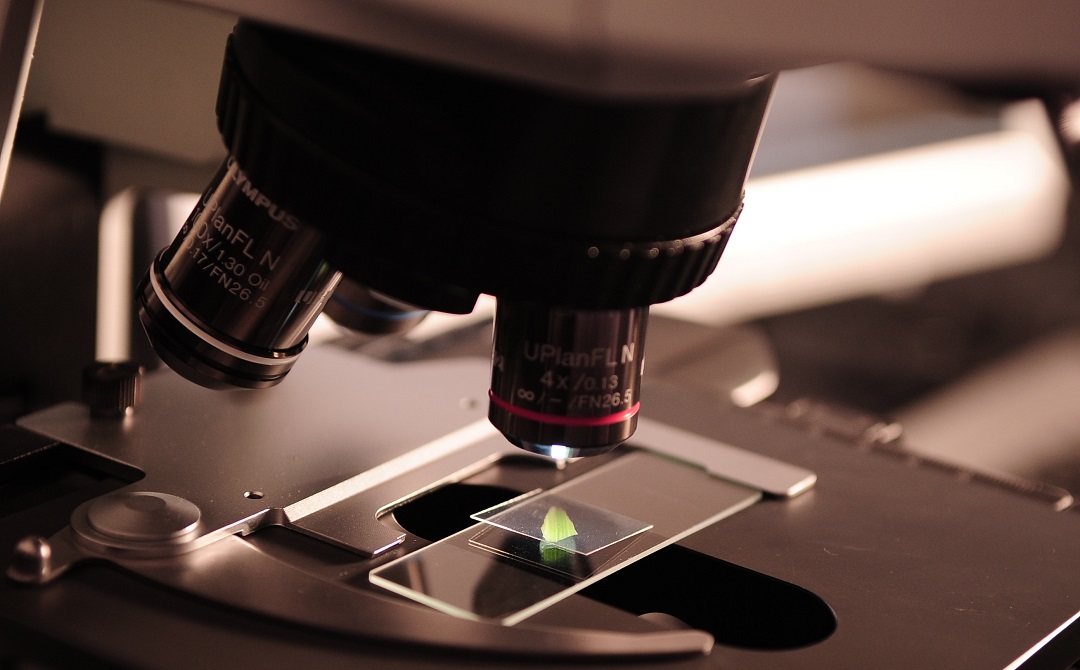Pursuing a career in science demands a diverse array of strengths, from analytical prowess to unwavering curiosity. As the industry continues to evolve and expand, cultivating a well-rounded skill set becomes increasingly paramount. By taking the HIGH5 strengths assessment, individuals can gain valuable insights into their unique strengths, empowering them to navigate the ever-changing landscape of science with confidence and purpose.
From being able to effectively communicate findings to having excellent problem-solving abilities, many strengths are essential for success in science.
In this article, we’ll explore some of the key strengths needed for a career in this industry. We’ll also provide some tips on how you can develop these skills. Let’s get right into it.
Why Is It Important To Recognize the Strengths of Science & Their Benefits?
Science is a process of inquiry that helps us to better understand the natural and physical world. It enables us to ask questions, test hypotheses, and discover new knowledge. Science has a long history of making significant contributions to human welfare, and it continues to play a vital role in our society today.
Recognizing the strengths of science and their benefits is crucial for personal and professional growth in this field. However, before harnessing these advantages, it’s essential to understand one’s innate strengths and areas for development. The HIGH5 strengths assessment provides a comprehensive analysis of an individual’s unique strengths, enabling them to leverage their natural abilities and cultivate a growth mindset. By aligning their strengths with the demands of scientific pursuits, individuals can unlock their true potential, contributing to the advancement of knowledge and the betterment of society.
Some of the strengths in science are as follows:
Improved Quality Of Life
Science has helped to improve the quality of life for people around the world. Through scientific advances in medicine, agriculture, and technology, people have seen their life expectancy increase and their standard of living improve.
Economic Prosperity
Science has also played a major role in economic prosperity. Developed countries that have invested heavily in science and technology have seen their economies grow at a much faster rate than those that have not.
Some of the most successful economies in the world today, such as the United States, Japan, and South Korea, are those that have made significant investments in science and technology.
Environmental Protection
Science has also helped us to better understand and protect the environment. Through scientific research, we have gained a greater understanding of the natural world and the threats that it faces. This knowledge has helped us to develop strategies for conserving resources and managing environmental risks.
For example, scientists have been able to identify the causes of various environmental problems, such as air pollution and global climate change. They have also been able to develop solutions to these problems, such as cleaner-burning fuels and renewable energy sources.
National Security
Science plays an important role in national security. Through scientific research, we can develop new technologies that can be used for defense purposes. For example, the military services of some of the top countries use a variety of sophisticated technologies, such as night-vision equipment and radar, all of which were developed through scientific research.
In addition, science can help us to better understand and defend against potential threats. For instance, by studying diseases and other biological threats, we can develop vaccines and other medical treatments that can save lives.
Safer Workplaces
Science has also made workplaces safer. Through scientific research, we have been able to identify and address many workplace hazards. This has led to the development of safer work practices and the use of safer materials and equipment.
As a result, workplace injuries and fatalities have declined significantly. Introducing new safety measures can often be a challenge, but the benefits of doing so are clear.
New Technologies
Science has led to the development of new technologies that have made our lives easier and more comfortable. From the telephone to the Internet, from medical technologies to space exploration, science has transformed the world.
Deeper Understanding Of The Universe
Through scientific research, we have been able to gain a deeper understanding of the universe and our place in it. We have learned about the origins of the universe and the solar system, and we have discovered new planets and galaxies.
In addition, we have been able to develop theories that explain the behavior of matter and energy. These theories have led to a greater understanding of the universe and our place in it.
More Effective And Efficient Industries
Science has also helped to make industries more effective and efficient. Through scientific research, we have been able to develop new technologies and processes that can be used in industry.
For example, scientists have developed new methods for manufacturing products, such as semiconductors and pharmaceuticals. They have also developed new methods for managing resources, such as water and forests.
Greater Global Cooperation
Finally, science has helped to promote greater global cooperation. Through scientific research, we have been able to develop a better understanding of the world and its people. This has led to the development of international organizations and treaties that promote peace and cooperation.
For example, the United Nations was founded in 1945 as a result of the shared desire of countries to cooperate and work together for the common good. And, the Treaty on the Non-Proliferation of Nuclear Weapons was created in 1968 to prevent the spread of nuclear weapons.
Science has truly transformed the world. Through scientific research, we have been able to develop new technologies, gain a deeper understanding of the universe, and promote greater global cooperation. Science has truly changed the world for the better.
10 Examples of Strengths In Science
While possessing qualities like attention to detail, perseverance, and critical thinking are undoubtedly valuable in the field of science, it’s equally important to recognize and nurture your unique strengths. The HIGH5 strengths assessment empowers individuals to identify their distinct strengths, providing a roadmap for personal and professional growth. By leveraging your natural talents and capitalizing on your strengths, you can navigate the challenges of scientific pursuits with greater ease and efficacy, ensuring a fulfilling and impactful career.
Here are 10 examples of strengths that are essential in the field of science.
Attention to Detail
As a scientist, one of the most important qualities to have is attention to detail. Details are what separate good scientists from great ones. For example, when experimenting, it is important to take into account all of the small details to get accurate results.
Never Quit
Another important quality for scientists is to never give up. Quitting is not an option when it comes to science. There will be many times when things do not go as planned, but it is important to find a way to work through the problem and come up with a solution.
Be Creative
Creativity is also an important quality for scientists. To be successful, scientists must be able to think outside of the box and come up with new ideas. Being creative allows scientists to come up with new ways to solve problems and develop new theories.
Get Organized
Another important quality for scientists is to be organized. Scientists must be able to keep track of their experiments, data, and observations. If they are not organized, it will be difficult to make sense of their results and draw accurate conclusions.
Be Passionate
Passion is also an important quality for scientists. Without passion, it can be difficult to stay motivated when things get tough. Passion drives scientists to continue working hard and doing whatever it takes to achieve their goals.
Perseverance
Perseverance is another essential quality for scientists. There will be many times when experiments do not go as planned or when data is not as clear as it should be. In these cases, it is important to persevere and keep working until a solution is found.
Think Critically
Critical thinking is also an important quality for scientists. Scientists must be able to look at data and observations and critically analyze them to form conclusions. Without critical thinking, it would be difficult to make progress in science.
Have A Good Work Ethic
A good work ethic is also essential for scientists. Scientists must be willing to put in the long hours and hard work required to be successful. Without a good work ethic, it would be difficult to make progress in science.
Be Independent
Independence is also an important quality for scientists. Scientists must be able to work on their own and make decisions without guidance from others. This allows them to move forward with their work without having to wait for approval from others.
Take Risks
Taking risks is also an essential quality. Scientists must be willing to take risks to make progress. Without taking risks, it would be difficult to develop new theories and find new solutions.
Pro Tip From HIGH5
Reflect on the strengths highlighted in this section, such as problem-solving, critical thinking, and attention to detail. Consider taking the HIGH5 assessment to gain a deeper understanding of your strengths and how they can be applied to excel in scientific endeavors, ultimately contributing to the numerous benefits outlined here.
How To Identify & Master Your Science Strengths
It’s no secret that science is one of the most challenging school subjects. But did you know that there are ways to make learning science easier and even fun? One key is to focus on your strengths.
Think about it this way: If you’re good at math, you probably have an easier time understanding concepts like fractions and decimals.
Similarly, if you have a natural knack for science, you’ll likely find it easier to grasp tough topics like chemistry and physics. The good news is, even if you don’t consider yourself a “science person,” there are ways to improve your skills and succeed in science class.
Here’s a look at some tips for identifying and mastering your strengths in science:
- Talk to your teacher. One of the best ways to identify your strengths in science is to talk to your teacher. He or she can give you specific feedback about areas where you excel and offer suggestions for how to improve in other areas.
- Take practice quizzes. Another great way to identify your strengths is to take practice quizzes online or in your textbook. This will help you zero in on which topics you understand well and which ones you need to work on.
- Get a tutor. If you’re struggling with a particular topic, don’t be afraid to get help from a tutor or another knowledgeable person. This extra help can make all the difference in bringing up your grades.
- Make connections. A great way to understand science concepts is to make connections between what you’re learning and real-life examples. For instance, if you’re studying photosynthesis, think about how plants use sunlight to create food.
- Use study aids. There are all sorts of helpful study aids available for science, from flashcards to apps to websites. Find the resources that work best for you and use them to master difficult topics.
- Stay positive. One of the most important things you can do when it comes to succeeding in science is to believe in yourself. When you approach science with a positive attitude, you’ll be more likely to succeed.
- Take a strengths test. High5test.com is a website that offers a free test to help you identify your top strengths. Once you know your strengths, you can focus on using them to improve your science skills.
How To Improve Science Strengths in The Workplace
Become a Better Problem Solver
When problems arise, take a step back and assess the situation before taking action. Try to come up with creative solutions that will benefit everyone involved. If you can demonstrate your ability to solve problems effectively, you will be an asset to any organization.
Be More Organized
The organization is another key way to improve strengths in the workplace. When you are well-organized, it shows that you are capable of handling multiple tasks and responsibilities.
This can make you more efficient and productive in your role. Make sure to keep your work area tidy and organized so you can stay on top of everything that needs to be done.
Communicate Better
Effective communication is essential in the workplace. If you can learn to communicate effectively, you will be able to build better relationships with your coworkers and superiors.
When you can communicate clearly, it will be easier to get your point across and be taken seriously. Make an effort to practice your communication skills to become more confident in your ability to communicate effectively.
Be More Detail-Oriented
Another way to improve strengths in the workplace is to be more detail-oriented. This means paying attention to small details and ensuring that everything is accounted for.
This can be helpful when you are working on projects or tasks that require precision and accuracy. Paying attention to detail will show that you are thorough and reliable in your work.
Be Proactive
Productivity means being proactive about your work and taking responsibility for your actions. This can be helpful when you are trying to prevent problems from happening or when you are seeking out new opportunities.
Being proactive will show that you are invested in your work and that you are always looking for ways to improve.
Be a Team Player
When you are a team player, it shows that you are willing to work with others to get the job done. This can be helpful when you are working on projects or tasks that require cooperation.
Be Flexible
Being flexible is another way to improve strengths in the workplace. This can be helpful when you are working on projects or tasks that require innovation. Being flexible will demonstrate your ability to adapt and change with the demands of the workplace.
Pro Tip From HIGH5
Before implementing the strategies outlined in this section, consider taking the HIGH5 strengths assessment to gain a deeper understanding of your unique strengths. This insight can help you tailor your approach to professional development, ensuring that you are leveraging your natural abilities while addressing areas for growth, ultimately positioning you for success in the science-oriented workplace.
How To Highlight Science Strengths In Resume & Job Interview
If your dream job is in a science-related field, you will need to show off your science strengths in your resume and during job interviews.
Science is a broad field, so it is important to focus on the specific area of science that you are interested in and experienced with. When highlighting your science strengths, be sure to mention any specialties or areas of expertise.
Some examples of science strengths that could be relevant to include on a resume or discuss during a job interview include:
- Analytical skills
- Problem-solving skills
- Attention to detail
- Creativity
- Critical thinking skills
- Observation skills
- Research skills
- Data analysis skills
As you prepare to showcase your science strengths during the job application process, it’s essential to have a comprehensive understanding of your unique strengths and how they align with the role you’re pursuing. The HIGH5 strengths assessment provides a valuable starting point, offering personalized insights into your natural abilities and areas of expertise. By leveraging this knowledge, you can craft a compelling narrative that resonates with potential employers, effectively communicating how your strengths make you the ideal candidate for the position. Whether it’s highlighting your analytical skills, problem-solving prowess, or attention to detail, the HIGH5 assessment empowers you to present your strengths with confidence and conviction.
Pro Tip From HIGH5
Before crafting your resume or preparing for interviews, take the HIGH5 strengths assessment to gain a comprehensive understanding of your unique strengths. This insight will not only help you effectively communicate your value proposition but also ensure that you are pursuing roles that align with your natural abilities, increasing your chances of finding a fulfilling and rewarding career in the scientific field.
Bonus Tip: 5 Examples of Weaknesses In Science
Here are five examples of weaknesses that can hold you back from being an outstanding scientist.
- You’re not open-minded enough: Working in an area that is constantly evolving, it is important to keep an open mind. If you’re not willing to accept new ideas or perspectives, you’ll likely fall behind.
- You’re not willing to accept criticism: Part of being a successful scientist is being able to take criticism. If you can’t handle constructive feedback, it will be difficult to improve your work.
- You’re not curious enough: One of the most important qualities of a scientist is curiosity. If you’re not constantly asking questions and exploring new ideas, you won’t make any important discoveries.
- You’re not persistent enough: Science requires a lot of trial and error. If you give up too easily, you’ll never find the answers you’re looking for.
- You’re not innovative enough: To be a successful scientist, you need to be able to think outside the box. If you’re not willing to take risks, you’ll never make any progress.
Strengths In Science FAQs
What are the 5 characteristics of science?
The five characteristics of science are: testable, observable, repeatable, falsifiable, and predictive.
Here is some information about each of them:
- Testable: To be considered scientific, a hypothesis must be testable. This means that it can be observed and measured in some way.
- Observable: Scientists must be able to observe what is happening in an experiment to measure it.
- Repeatable: A key part of the scientific method is that experiments must be reproducible. This means that other scientists should be able to get the same results from the same experiment.
- Falsifiable: For something to be considered scientific, it must be possible to disprove or disprove it. If there is no way to disprove a hypothesis, it is not scientific.
- Predictive: Scientific hypotheses must be able to make predictions about what will happen under certain conditions. These predictions can then be tested.
What are the qualities of a science student?
There are many qualities that make a good science student, but some of the most important ones are as follows:
- Curiosity: A good science student is curious about the world around them and wants to know how things work. They are always asking questions and trying to find answers.
- Critical thinking: A good science student is able to think critically about the information they are presented with. They are not afraid to look at all the evidence before forming a conclusion.
- Attention to detail: A good science student pays attention to detail and can notice even small changes or patterns. This is important in experiments and data analysis.
- Open-mindedness: A good science student is open-minded and willing to consider new ideas. They are not set in their ways and are always looking for new ways to solve problems.
- Perseverance: A good science student is persistent and doesn’t give up easily. They understand that experimentation can be frustrating at times, but they keep trying until they find a solution.








